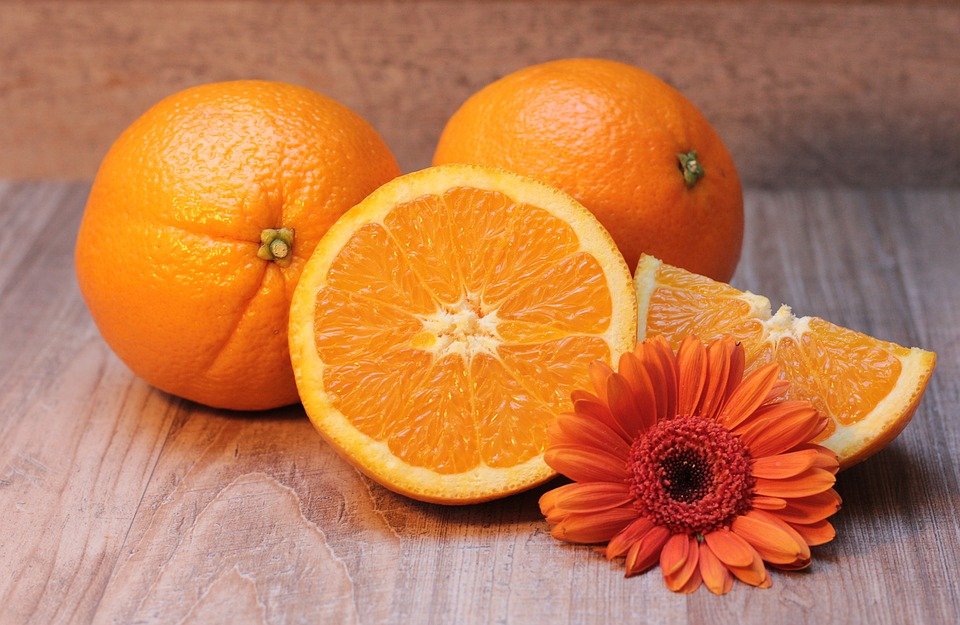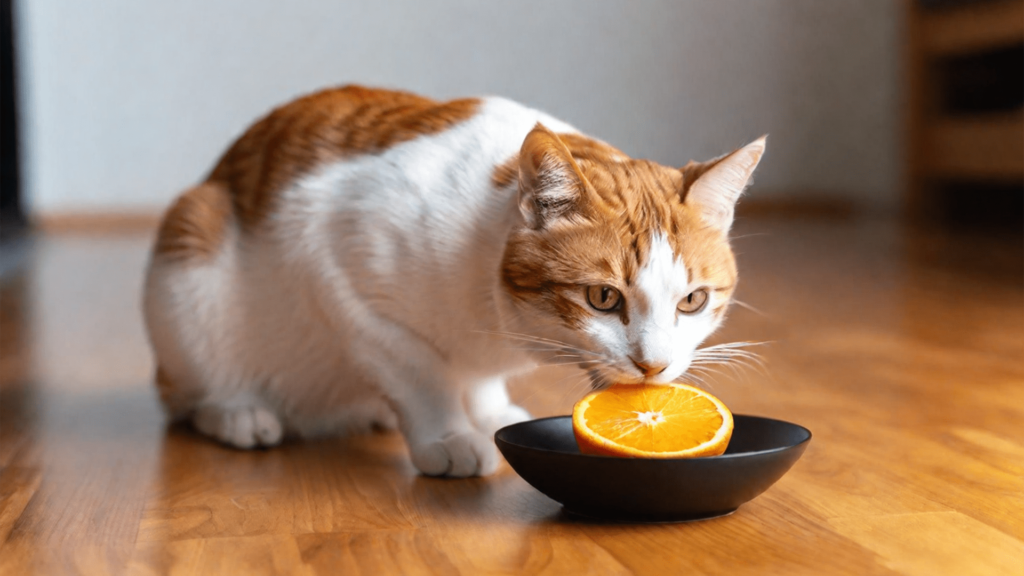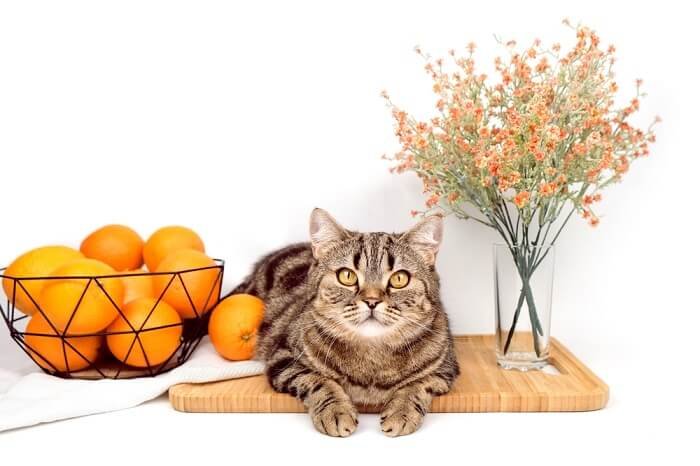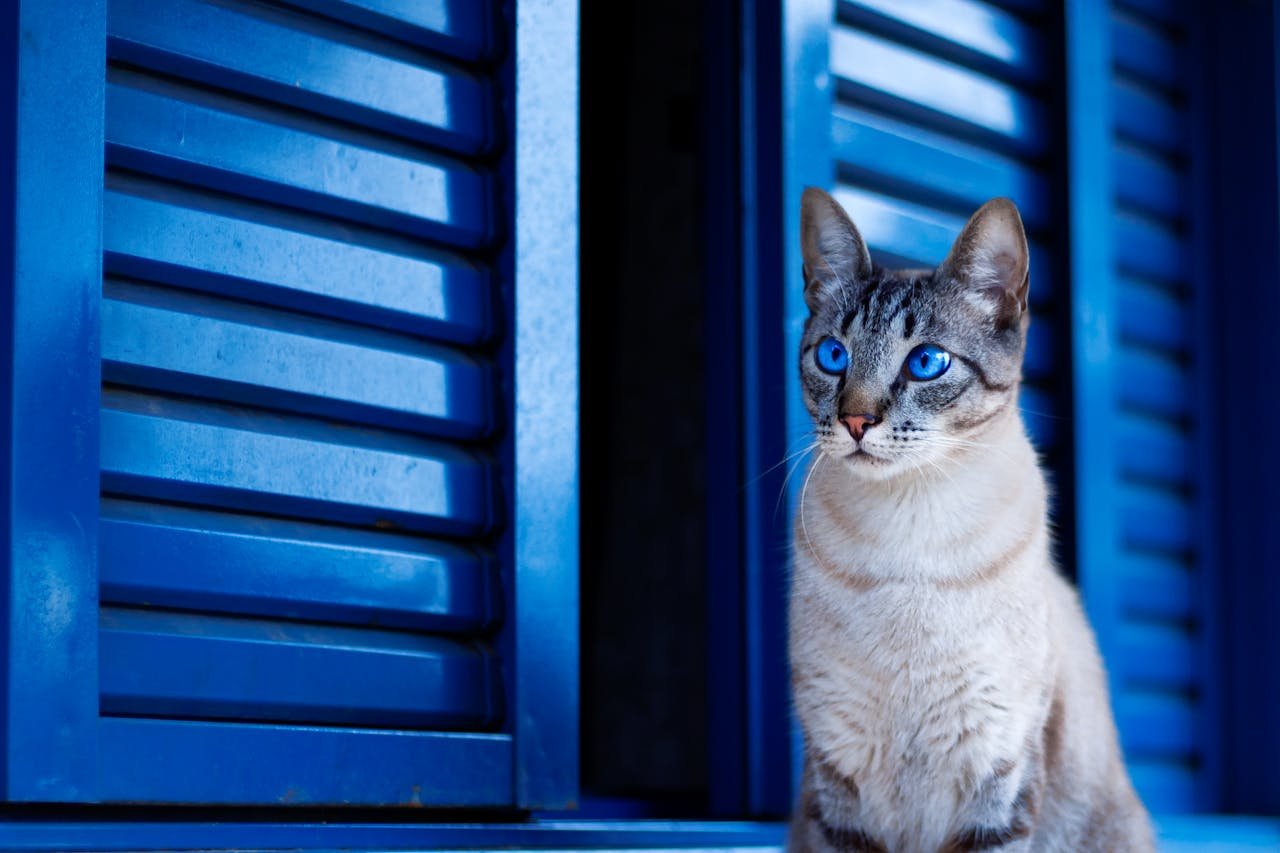Can Cats Have Mandarin Oranges? Shocking Expert Warnings Every Cat Parent Must Know (2025)
Tangy mandarin oranges may be a refreshing snack for humans, but can cats have mandarin oranges safely? The straightforward answer is no. Cats are obligate carnivores, and their digestive systems aren’t built to handle fruits or vegetables. They thrive on nutrients like taurine, arachidonic acid, and vitamin A—found only in animal-based proteins. Unlike humans or even dogs, cats lack the enzymes needed to digest citrus fruits. Mandarin oranges, along with other citrus varieties, contain harmful compounds like essential oils, citric acid, and psoralens, all of which are toxic to felines. Even a small amount can lead to unpleasant symptoms such as vomiting, drooling, or stomach upset. Cats are extremely sensitive to citrus, both in scent and taste. To keep your cat safe and healthy, it’s best to steer clear of citrus altogether.
If you are looking to add a treat to your cat’s diet, a small slice of ripe and seedless persimmon may be a good option, but only under your vet’s supervision. In short, cats should never have mandarin oranges, and knowing your cat’s specific dietary requirements is essential to maintaining their overall health and happiness.
Can Cats Eat Mandarin Oranges? The 2025 Citrus Safety Guide for Loving Cat Owners
In small amounts, mandarin oranges and other citrus fruits are not toxic, but their citric acid and essential oils would be of no good to a cat’s digestion. They may be mildly allergic to it, resulting in itching and swelling, which is also not ideal. Although most cats would be repelled by the smell of citrus, a few would be curious enough to take a few bites. While a tiny nibble of mandarin oranges would not cause any significant damage, it is of no nutritional value for cats and would foster unhealthy feeding patterns. Cat parents in the year 2025 are encouraged to provide more suitable and healthy options such as vet-approved cat treats or safe veggies like pumpkin, carrots, and green beans which are high in fiber and aid in digestion without the risk of citrus fruits.
In 2025, Sharing Oranges with Cats Is Still Not Allowed, Experts Continue to Say
As much as felines may enjoy humans’ company, no, they should not be fed oranges— not even a sliver. This includes all varieties: navel, mandarin care, blood oranges, and even the peels. Oranges are off limits for cats due to their high juices and sweet smells as they do provide compounds that are toxic, especially when eaten in considerable amounts.

Veterinary experts have suggested that the symptoms caused by orange consumption range between mild to severe gastrointestinal problems. Caught in the sweet, citrus smell most cats might be repelled, but for those that dare to nibble on the pesky orange, the side effects are instant.
Canned Mandarin Oranges: Safe for Cats in 2025? A Vet Backed Warning
Wondering if your feline friend would safely enjoy a spoonful of canned mandarin oranges? While the thought to indulge your cat with a sweet citrus treat may be appetizing, this thought of sharing doesn’t match with reality and would be of more detriment. While a sliver of plain mandarins may not do instant harm, the versions preserved in syrup most often found in stores can disrupt your cat’s health.
Sugars That Can Cause Health Issues
Canned mandarins come with a side order of sugar syrup, which sweetens the offering far beyond what a cat needs. Cats cannot process sugar of any kind, and for those who are a bit overweight, the added sugar leads to even more health issues. For indoor cats, sugar leads to obesity, diabetes, and severe dental problems over time.
Chemical preservatives and artificial colorings
Canned fruits are often enriched with flavor and color and, for that reason, come with a side order of artificial chemicals like preservatives. Although it may not affect us, it can cause stomach issues and vomiting for your cat. Cats are more susceptible than us to artificial ingredients as these compounds can be toxic to them.
Importance of citric acid the same
Although it can be argued that the citric acid in canned mandarins is not as irritating a polish to the digestive systems of cats, the acid is still capable of irritating the stomach, especially in cats with a strong history of digestive issues. If a cat is prone to these issues, continuous exposure to the said canned fruits is sure to increase the cat’s chances of developing chronic digestive issues.
Related Post: Can Cats Eat Cheerios? Expert Advice 2025
Do Cats Enjoy Oranges, Mandarins, Tangerines, Persimmons, Or Clementines?
Why Cats Don’t Enjoy Citrus Fruits
While the lively taste and tangy scent of oranges, mandarins, and tangerines might appeal to many, cats feel completely the opposite. Unlike us, cats have a hardwired aversion to these fruits.
Cats smell up to 14 times better than humans making the scent of citrus fruits overwhelming. Zesty oranges and clementines can smell unbearable to cats. This is the reason why many pet-safe repellents use orange and lemon essential oils. Cats steer clear from these scents and their powerful smells.
Citrus fruits are also dangerous to cats. Using orange or lemon essential oils as repellents are effective for the reason why cats wouldn’t like it. Cats have strong instincts and highly powerful noses.
Besides their pungent scents, citrus fruits have compounds like limonene, linalool, and psoralens. These compounds can be harmful or dangerous to cats if eaten. Persimmons can still be dangerous as their high sugar and fiber content can disrupt a cat’s stomach.
Can Cats Eat Oranges, Tangerines, Clementines, Mandarins, or Persimmons?
What Humans Enjoy These Fruits May Be Risky For Cats
Citrus fruits such as oranges, mandarins, tangerines, clementines, and even persimmons are full of vitamins and antioxidants. These fruits are celebrated as “superfruits” for enhancing the human immune system, skin health, and fighting cell damage.
But for your cat, these fruits tell a completely different story.
What’s Contained in These Fruits, and Why Cats Should Not Eat Them
Let’s quickly assess the nutritional values of a medium orange.
Calories: 60
Sugar: 12g
Vitamin C: 70mg
Potassium: 237mg
Fiber: 3g
Carbohydrates: 15.4g
Fat & Protein: Minuscule amounts
Even though these nutrients seem to be healthy, a cat’s digestive system isn’t designed to handle fruits, especially citrus fruits.
Why Oranges and Citrus Fruits Are Not Safe for Cats
Citrus fruits are non-toxic in very small quantities, but they still pose a danger for indoor cats. For example:
- Citrus fruits contain too much sugar that can lead to obesity, diabetes, and even tooth decay.
- Citric acid which is too harsh for a cat’s stomach and can lead to vomiting or stomach issues.
- Essential oils that can harm the cat’s nervous system.
- Psoralens which are natural compounds that can be photosensitive and irritate the skin in cats.
- So, for a cat, a single segment of orange can pose a risk to their health.
Are Persimmons Safe for Felines?
With respect to cats, the consumption of persimmons does not pose any problems, and cats can safely eat persimmons with some care—unlike citrus fruits which can be toxic.
How To Safely Feed Persimmons To Cats
– Only the ripe, soft flesh should be fed without any skin, seeds or leaves.
– Felines should not be given large portions. Even fruits that are safe should be given only occasionally.
– The majority of cats will not crave persimmons because of the lack of sweetness. However, some may enjoy the texture.
– Persimmons have the ability to provide fiber and hydration but can be harmful if given in large quantities. They should always be provided in moderation.
What Happens If A Cat Eats Citrus Fruits?
Watching your cat attentively is important if they accidentally consume orange slices, peels, or even mandarin juice.
Signs of Citrus Poisoning In Cats
– Vomiting or diarrhea
– Bad breath or drooling
– Weakness or lethargy
– Seizures or tremors in severe cases
– Itchy skin, dermatitis
– Loss of appetite or depression
The symptoms can emerge after hours and if they are severe, persistent, or in combination with other symptoms, they require medical attention.

How Much Orange Is Dangerous For Cats?
The cat may face some digestive disorder when it comes to a small lick or a small bite of orange. However, a large consumption of orange—especially in the form of peels or juice—might pose serious health complications.
Cats are delicate creatures, and because of their size, it doesn’t take much to affect them.
What Is The Recovery Period Following Ingestion Of An Orange?
Most cats tend to bounce back quickly as long as they receive proper care and hydration. In cases of minor ingestion, your vet may only recommend supportive care at home. More serious cases that involve vomiting, diarrhea, or even some neurological symptoms may need to be treated with IV fluids and monitoring at a clinic.
What Is The Nutritional Content Of Oranges To Cats?
While oranges are packed with essential nutrients that benefit humans, such as vitamin C, potassium, and even some natural sugars and dietary fibers, cats don’t benefit the same way humans do.
Cats Do Not Benefit From Extra Vitamin C
This means that cats will not benefit from this vitamin and, as noted earlier, overconsumption of vitamin C from fruit such as oranges may lead to urinary tract issues like calcium oxalate stones, painful to mineral deposits that demand veterinary intervention.
Fiber Provides Little to No Benefit
The fiber found in oranges is of no benefit to cats, and can actually be counterproductive, irritating a cat’s stomach and leading to loose stools instead of aiding in digestion. Cats are obligate carnivores and their digestive systems effectively process proteins from animal sources. Even beneficial fruits can prove to be irritating for cats.
Natural sugars have no purpose for carbs
Carbohydrates have no purpose for a cat, and natural sugar is even less helpful. Oranges have sugar, and cats lack the taste receptors for sweetness. The sugar found in oranges can cause a spike in blood sugar, posing a risk to cats suffering from diabetes or pre-diabetes. Even healthy cats risk gaining weight, and suffering from metabolic, and energy level issues.
Fruits offer no benefits and a lot of risk
Cats are in need of high-quality animal protein and animal fat to maintain a healthy weight. Oranges as fruits offer no benefits to a cat’s diet, and pose more risk than reward. Feeding cats oranges can disrupt their digestive balance and have long term effects for their health, making them long term health issues.
Why Oranges Are More Harmful Than Helpful for Cats
The Dangerous Compounds Hiding in Orange Peels and Flesh
While oranges are a great source of nutrition for humans, they carry risks for cats. Oranges, including the peel and flesh of the fruit, contain limonene, linalool, and psoralens. These compounds are highly irritating for a cat’s internal systems. Even mild exposure or ingestion of these compounds can cause vomiting, diarrhea, lethargy, and skin sensitivity. Internally, psoralens can cause a reaction to sunlight which can result in life threatening redness and blistering for outdoor cats.
Sugar Overload: A Risk to Feline Metabolism
The bodies of cats are designed to consume a high protein and low carbohydrate diet. Due to the high sugar content in oranges, cats can consume loads of sugar which provides no nutritional value. This poses a serious problem for overweight cats, or sedentary cats, who are already at risk for developing diabetes, obesity, or tooth decay. For those who are more active, the sugar content in oranges can spike the blood glucose levels leading to further health troubles.
Citrus Fruits and Felines Don’t Mix
Though oranges are a good source of vitamin C, cats, like other felines, do not require it from external consumption. Vitamin C, or as it is chemically known, ascorbic acid, is a vitamin that is naturally synthesized from the body of cats. This makes oranges unwanted and potentially harmful. Additionally, the sharp, acidic, and prickly nature of citrus is known to irritate a cat’s irritated and delicate digestive system. This often results in stomach upset, vomiting, or diarrhea in cats.
Related Post: Can Cats Eat Dragon Fruit for a Healthy Treat?
What to Do If Your Cat Eats an Orange
Stay Calm and Watch Closely
If you notice that cats like to eat or lick orange flesh, orange peels, or orange juice, don’t panic. If you observe them vomiting a small lick of orange juice, it’s likely not fatal. In this case, it is important to monitor your pet closely over the next few hours. These could be early signs of some toxicity too, however, not often observed.

Citrus cones like oranges, mandarins, and clementines are often still a source of food for your feline pets. While some cats do not like to eat them, many others that are spirited, and curious will like the smell. As a responsible pet owner, you should do away with juice spills or fruit bowls. Ensure that trash cans which are placed under counters are closed too.
Reach Out To Your Veterinarian Immediately
Call your veterinarian at once if your cat is showing signs of distress or has consumed a considerable amount of orange or peel. Home remedies like vomiting and activated charcoal without a professional’s advice can be very harmful. A veterinarian will assess the severity of the situation and may recommend supportive treatments such as IV fluids or anti-nausea medications.
Look Out For Symptoms
For some felines, symptoms of poisoning can take longer to surface. For as long as a day, keep an eye on your pet, and especially if you are uncertain about the amount of food they have eaten. Weakness, some skin irritation especially when the cat is exposed to sunlight, tremors, and seizures are all symptoms of the pet worsening that necessitate immediate veterinary treatment.
Avoid Such Situations In The Future
In case your cat displays unusual symptoms, consider checking with a veterinarian. Once the pet has fully calmed down, it’s recommended to remove any loose fruits. Always notify your household and avoid lemon or orange-scented cleaning supplies. After you take care of these immediate loose fruits, it’s recommended to remove any further nature based scented products, to ensure long term safety.
Considerations: Can Cats Have Mandarin Oranges?
Both pet owners and cats would immediately benefit from a distinct separation of cats and mundane emails since those are of no use in a pet’s life. Over time, a cat gaining access to those fruits would lead them to the final late stages of maturing, leading them to becoming overweight. In other words, the pet cat or even the wildlife cats would find easy access to some fruits like corneas which would have high sugar content.
To sum up, cats and mandarin oranges are a bashful combination and shouldn’t be encouraged. Looking at pieces of nutrition plays a crucial role towards a cat’s treatment helps in proper up keeping of a pet.
Questions and Answers: Can Cats Have Mandarin Oranges?
Can a cat get harmed if someone serves them just one slice?
Yes. Due to a cat’s easily disreputable systems, the pet cat or even some wildlife would face serious consequences severely clogging some mandarin. Which in return would lead to them suffering in a huge magnitude. Containing and serving their systems or immune system to a cat’s body is while canapes is pure poison.
My cat licked some mandarin juice—should I worry?
If your cat does not have any pre-existing health issues, then having a small lick of mandarin juice shouldn’t immediately be a cause of major concern, however, keep an eye for any signs of excessive salivation, vomiting, or lethargy. Cats are very sensitive to anything remotely citrus, so it is best to not let it happen again.
Why are cats naturally repelled by some citrus fruits like mandarins?
Due to the presence of toxic constituents like limonene and linalool, Cats tend to stay away from mandarins and citrus fruits in general. These are not only unpleasant, in fact they are biologically harmful and poisonous to cats.
Can cats safely eat canned or fresh mandarin oranges?
No. Canned mandarins are not safe for cats due to the fact that they contain preservatives and added sugar. Fresh ones are not recommended either as they can still contain some of the toxic oils. Therefore, no form of Mandarin is safe for cats.
What fruit can cats eat safely instead of mandarins?
Non citrus fruits of small quantities such as peeled apples (without the seeds), blueberries and plain cooked pumpkin are safe. Always consult your veterinarian for any dietary changes before trying them.
For More Visits: SiameseMania
Also Read: Can Cats Eat Jell-O in 2025? What You Should Know

